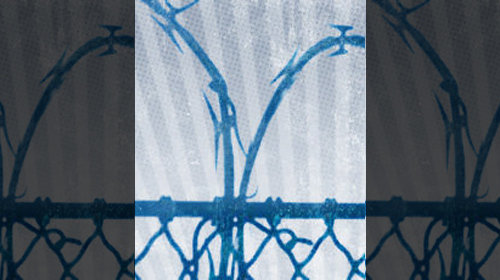
For 25 years, the ภฯฐฤรลฟชฝฑฝแน๛ has been a forceful advocate to end discrimination against prisoners living with HIV. We've worked to end their segregation from the rest of the prison population and ensure they are afforded access to vital services and programs.
TIMELINE
The Fight Against Segregation of Alabama Inmates with HIV ยป
We're in court this week against Alabama, one of two holdout states that still segregate HIV-positive prisoners. During the trial, which is expected to last about a month, you'll hear from some our lawyers. But today we want you to hear from one of our remarkable clients, whose dignity and determination have not been shaken by the stigma this misguided policy fosters. Dana Harley is a prisoner at the who has been living with HIV for more than a decade. As she told the court on Tuesday, she stands for the other women housed with her there and at , where women with HIV are segregated because "they need a voice to speak out."
They need a voice to speak out against being kept away from the general population, about having limited access to educational programs, self-help classes, work release and religious services while also suffering from the indignity that often accompanies family visits. Harley testified about an incident during a visit with one of her sons, then four-years-old.
So when it was time to take him to the bathroom, he had to go into the general population visitation area to use the bathroom. And he would always question me about why did he have to be escorted back to a room and not participate in visitation with the rest of the kids. You could see them running and playing, and he would always ask why, and it wasn't an explanation for a four-year-old.
Explanations have long been in short supply for Harley. She constantly asked prison and state officials why she was being segregated. There was never a response. The same thing happened when Harley, while housed at Tutwiler, asked the warden why she was pulled from being a teacher's aide in a trade school. "[H]e said that all he was required to give us, meaning the HIV-positive inmates was an education and nothing more."
Actually, there was moreโtwo days in solitary confinement for Harley's persistence in seeking an explanation.
That cell was basically the same as the six-by-nine cells that new prisoners who receive a preliminary positive HIV test are held in for up to a month while awaiting a test confirming HIV. Harley was sometimes allowed to go into the unit and speak with the women. "They wouldโ when I go and talk to them, they would ask how long they were going to be in that cell, when they were going to be able to come out, how they were losing their mind because they had nobody to talk to."
This trial is for them. This trial is also to take on a system where a warden can tell these women "y'all will not walk my halls and spread HIV."
Ultimately, such shameful ignorance will be overtaken by the courage of people like Dana Harley to speak out. She and the other women who have been segregated โ as well as the men living with HIV in a similar unit at โfor so long deserve better. As a society, so do we.
Learn more about HIV/AIDS discrimination: Sign up for breaking news alerts, , and .

